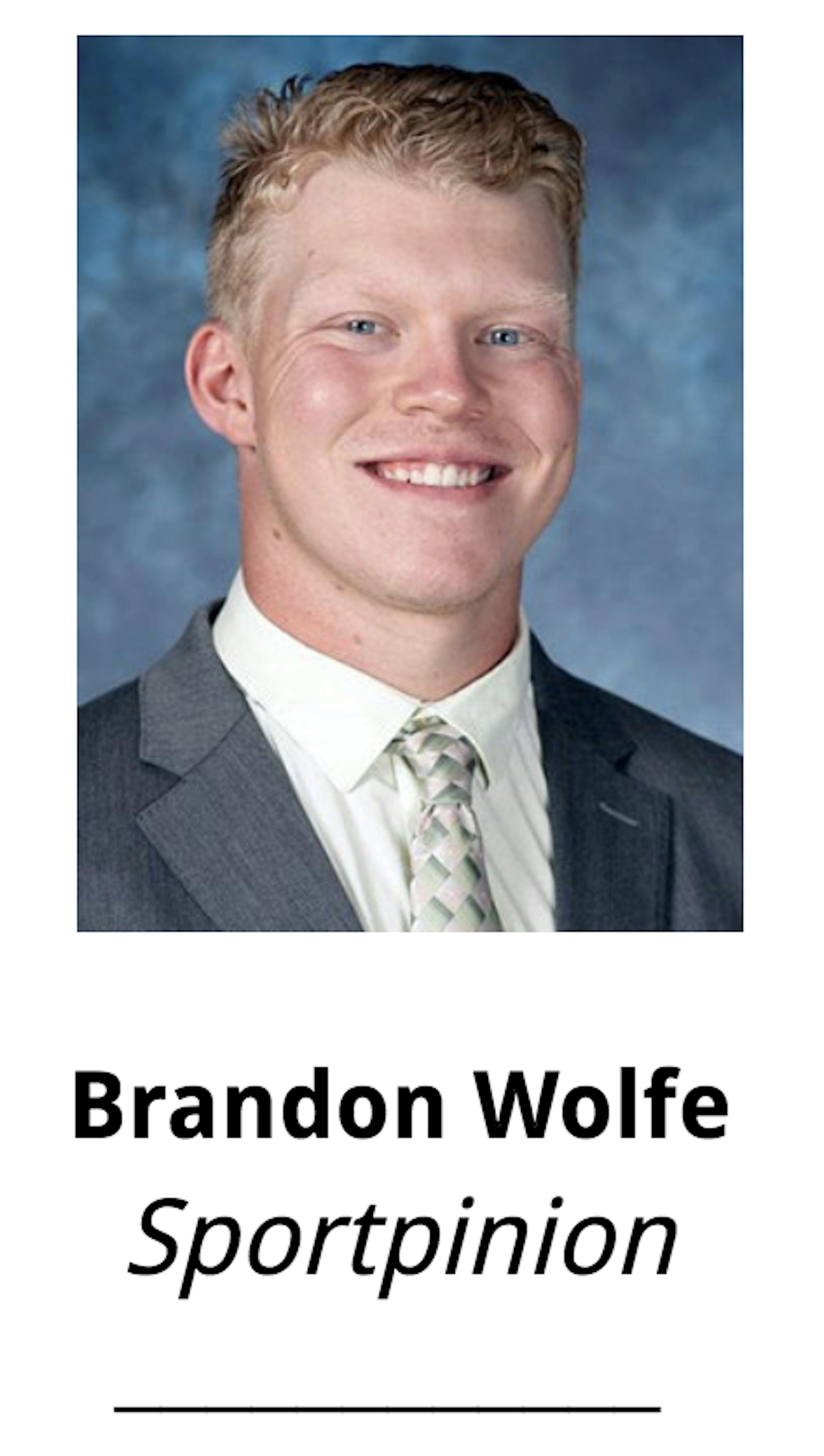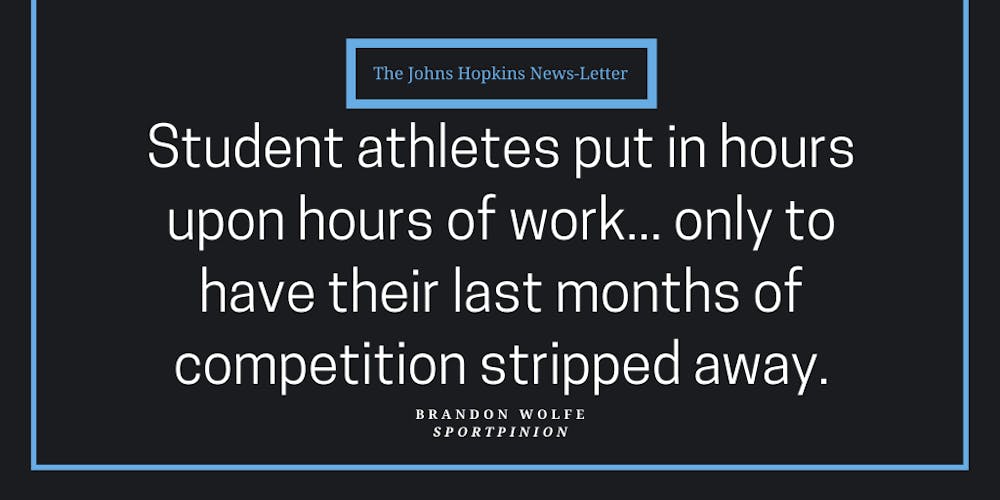
The coronavirus has spread chaos around the globe, touching every aspect of life and leaving the country’s physical, mental and emotional well-being in a vulnerable state. Within just a short period, people in the United States went from average day-to-day life to being advised to not leave their homes or be within six feet of others.
With the virus and the fear it induced spreading exponentially, organizations around the world were forced to make difficult decisions about their operational status. One of these organizations was the National Collegiate Athletic Association (NCAA), who announced on March 12 that the still-competing winter sports and the just-commencing spring sports and their championships were canceled. With that announcement, hundreds of senior athletes lost out on what for most is their final season.
I’d like to preface with a disclaimer: I understand that in this time of crisis, the last thing that many people are worried about is sports. Most are more concerned — and rightfully so — about staying safe and staying sanitary over March Madness or the start of college baseball, so reading about the impact that this global pandemic is having on athletes may not be a topic that resonates with many.
However, when the dust settles and life returns to normal, or whatever the new version of normal is for the country, these senior athletes will still have missed out on their true final campaign in their sport. While the NCAA has stated that they plan on extending spring athletes’ eligibility by a year to compensate for the cancellation, the details have yet to be worked out, and even if the program is implemented, it will likely have a very limited effect on Hopkins athletes.
For those who are unaware, Division-III programs are unable to provide their athletes with scholarship money in exchange for their services, so students on an athletic team pay the same amount as a non-athlete, excluding potential differences in financial aid. The NCAA also stipulates that student athletes must be enrolled in “no less than 12 credit hours per term to compete in athletics,” meaning that student athletes have to take and pay for an extra semester of classes to take advantage of this extra year of eligibility. Many of these athletes have also already made commitments to graduate programs or occupations following graduation, so even if they have the resources or interest in this fifth year, there won’t be many athletes able to use it.
In short, the seniors on the Hopkins lacrosse, baseball, tennis and track teams have competed for the last time in the black and baby blue. These student athletes put in hours upon hours of works on and off the field over the past four years in service of their teams, only to have their last months of competition stripped away in the name of containing the spread of the virus.
As a former athlete myself who had my athletic career taken away prematurely by injuries, I sympathize with these seniors and can only imagine the overwhelming feelings that must have filled their hearts when the announcement came through from the NCAA. No matter how you rationalize the decision, there are no words capable of expressing how meaningful this year was to so many.
The virus has ruined the senior year of students across campus, punctuated by the recent cancellation of the Class of 2020’s Commencement ceremony, and the likely dashed planned festivities to celebrate the conclusions of undergraduate experiences. For the senior athletes, take the missed experiences just mentioned and add two missed months of bus rides, practices, games and countless other hours spent outside of preparation and competition with their teammates.
Add in the traditional senior day festivities where family, friends and loved ones gather to celebrate the conclusion of the athletic journeys of these athletes and it is readily apparent just how much has been taken away. These are memories and experiences that cannot be replicated in any other setting, and their final year on Homewood campus will forever be tainted by the inability to fully realize the goals and aspirations for these finals days as a Blue Jay athlete.
Any athlete will speak to the importance of sports as more than just a form of physical activity and praise athletics as a means of learning life lessons and forming valuable social connections, and I encourage the spring athletes to use those lessons and those connections while coping with this loss. Few experiences can prepare you for trials and tribulations like sports, and the ups and downs of your athletic journeys and the knowledge you gained along the way will serve you well.
The late Jim Margraff, who was the head football coach at Hopkins, used to speak to his players about how fortunate they were to be able to play a college sport and how so many of those with the same dream of stepping onto a college campus as a student athlete were unable to realize that ambition. For those that had the honor of wearing “Hopkins” across your chest, you were part of a community of a lucky few who were fortunate enough to compete for elite athletic programs while attending a university that is revered as one of the very best on the planet.
Recent events have proven how fragile an athletic career can be. It could be an injury or a worldwide pandemic that closes the chapter on this truly special portion of an athlete’s book of life, but it serves as a reminder to not take time for granted and to appreciate every experience.
To those athletes who will be able to return to action next spring, I implore you to keep the Class of 2020 in your minds when you step on the field. When a workout seems difficult or a practice is tiring, think about how much the seniors before you would give to have just one more team workout or one more practice.
The athletic careers that recently ended are just the beginning of a new journey for these student-athletes, and I do not doubt that the soon-to-be graduates of Hopkins will go on to do incredible things in the world wherever they choose to spread their wings and in whatever they choose to excel in next. Although they were unable to finish their careers as they hoped, the Class of 2020 left an indelible mark on their team, on their teammates and on this campus.





